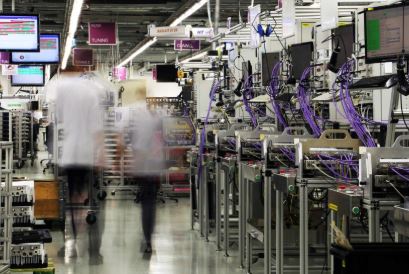Introducing 3D printing technology in the clothes manufacturing industry will reinforce, not change, current power dynamics weighted in favour of retailers, research from ESCP Business School suggests.
Professor Christian Durach, chair of supply chain and operations management at ESCP’s Berlin campus, and PhD candidate Marlene Hohn predict that retailers will likely react to increased production speeds and higher market competition by decreasing purchasing prices and the duration of fashion trends.
According to the researchers, 3D printing could be implemented in a complementary capacity, improving the efficiency of certain existing manufacturing processes, such as prototyping. It could also be used as a standalone production method, with production operations being developed based solely on the new technology and requiring minimal manual labour, according to the report’s authors.
If new standalone production operations are introduced, the researchers believe that new supply chains will be based on similar governance structures to those currently in use, and will therefore continue to face social issues.
“Our findings reveal little hope for social sustainability improvements, as suppliers will likely be increasingly trapped in supply chain structures, resulting in worsening working conditions in current producer countries,” Professor Durach said. “If new production operations are created, experts remain sceptical about who would reap the potential benefits.”
The ESCP paper was based on two Delphi studies, rounds of surveys with experts in the field of clothing mass production, and was published in the International Journal of Operations & Production Management.
Printed Copy:
Would you also like to receive CIR Magazine in print?
Data Use:
We will also send you our free daily email newsletters and other relevant communications, which you can opt out of at any time. Thank you.











YOU MIGHT ALSO LIKE